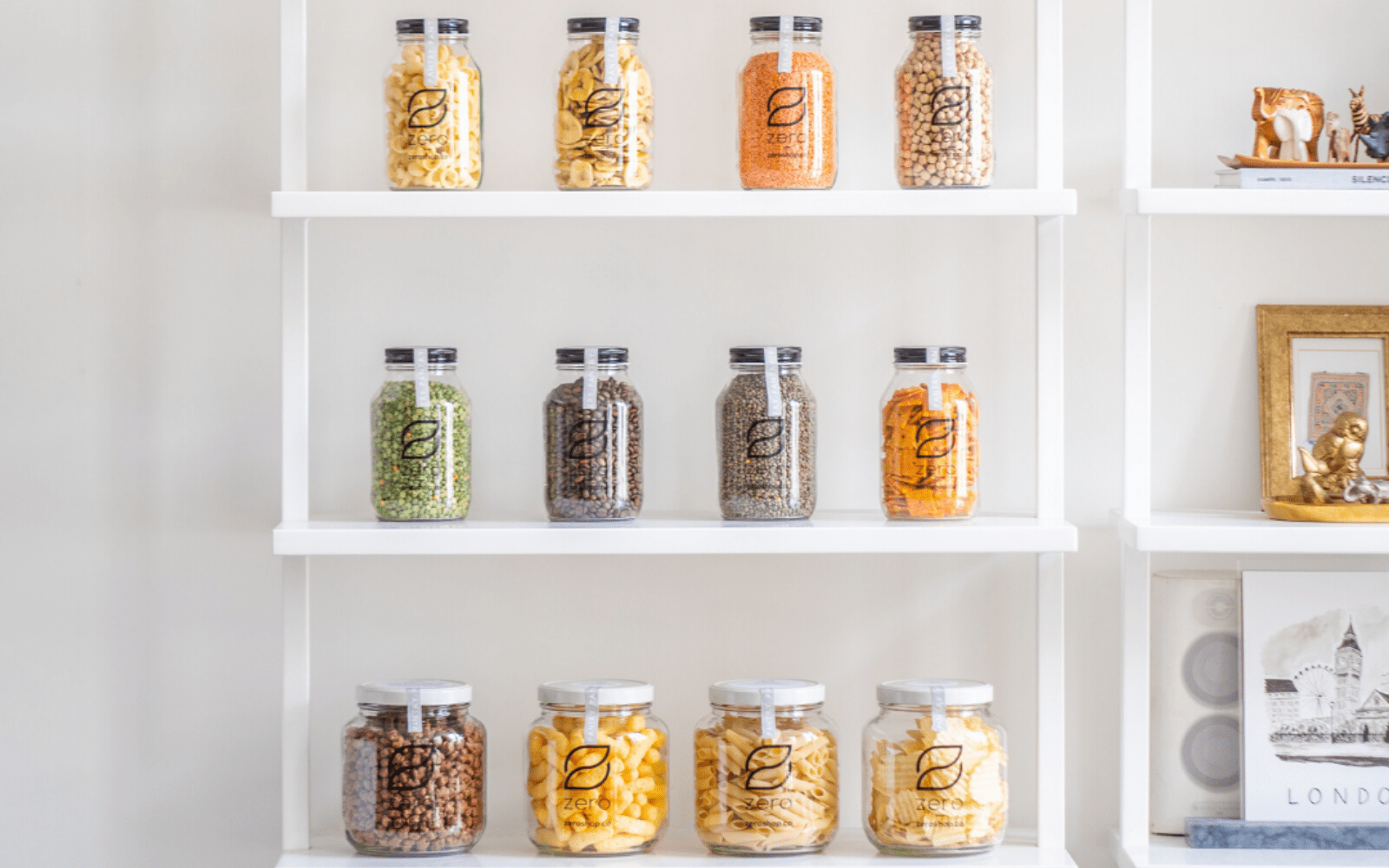Zero Grocery’s Circular, Eco-Conscious Delivery System

GLASS JARS AND PLASTIC-FREE PACKAGING FROM A GROCERY DELIVERY SERVICE ROOTED IN QUALITY.
Plastic-free shopping can be difficult, even if you bring your own bags. Stores use plastic packaging for house-made items, bulk foods, and even breads and baked goods. Few, especially in the midst of a pandemic, are willing or able to let you repackage an item before purchase. Further, companies often place the responsibility of sustainability on the customer. Zero, which launched in the Bay Area last year and expands to LA this week, does the work of avoiding single-use packaging for you. Following a strict no plastics policy, they source farm-fresh produce and other products, stock it in their private warehouse, sell at wholesale prices and deliver to your door—free for members or $7.99 for non-subscribers.
Founder and CEO Zuleyka Strasner launched Zero in the San Francisco area with the goal of refining every part of the supply chain, leaving the consumer with less or, ideally, zero waste. She devised a circular system reliant on glass jars and a “milk man” methodology. Some items are delivered in these glass jars which (after use) are picked up by Zero, and then cleaned and reused. This circle continues until you cancel your membership, when you’ll be charged for however many jars you still have on hand. Other items—like fresh produce or packaged candies—are delivered in paper boxes or reusable insulated bags. Zero leverages Strasner’s resourcefulness into a business that’s both convenient and more eco-friendly.

“The ‘aha!’ moment for Zero was that I decided to live a plastic-free life—and was very strict about it,” Strasner tells CH. “It was extremely difficult. And as I was experiencing the uphill battle of trying to take care of the planet. I spoke to lots of people who had a similar experience. People wanted to take steps to create less waste, but it was just too hard. Fortunately, I’m the type of person who loves to solve a tough problem, so I took it upon myself to build a company that would make it easier for people to get plastic-free groceries and everyday items. Our mission is bigger than that though: we want to eliminate plastic from the food system. One step at a time.”

This mission extends to suppliers and other wholesalers—including those Zero sources products from. Strasner says most are enthusiastic about complying with the company’s plastic-free requests, but that the “manufacturers and brands that want to be on our platform are ones who believe in what we are doing and want to take part in the movement to protect the planet. And we are so grateful to them for that.” Some already use glass jars for their products, which Strasner says makes them a natural fit.
“But for other companies, and actually for many companies on the platform, joining Zero is the first time they have a zero-waste product,” she explains. “For example, we work with coffee companies that haven’t ever packed their coffee beans in a glass jar—and now they do! These companies often get started on Zero by sending product in large bulk quantities to our facilities, and from there, we allocate the product into smaller quantities and pack them into jars (or other compostable materials if jars aren’t suitable). For our partners, we aim to make the process as easy as possible.”

For consumers, getting groceries from Zero proves as convenient as any competitor. Simply log on and order items listed under an array of categories: produce, diary, meat, prepared, bakery, drinks, pantry, snacks, home, personal and products for those with dietary restrictions.
“A lot of people think that sustainability can mean making sacrifices—in things like quality, cost or convenience. We don’t believe that’s necessary, and in fact, we believe sacrifices like that are hindrances to progress,” Strasner explains.

Successes throughout Zero’s development has “been really cool to watch,” she adds. “We started with the consumer, by creating a plastic-free online grocery store, and the improvements are now pervasive across the entire supply chain.”
Images courtesy of Zero Grocery